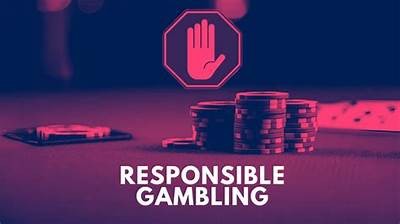Understanding the Basics of Betting: Tips, Strategies, and Responsible Gambling Practices
Understanding the Basics of Betting: Tips, Strategies, and Responsible Gambling Practices
Betting can be a thrilling experience, combining skill, strategy, and a little bit of luck. However, for both newcomers and experienced bettors, understanding the fundamentals is crucial to maximizing the enjoyment of this activity while minimizing the risks. This article delves into the basics of betting, providing essential tips, strategies, and best practices for responsible gambling.

What is Betting?
Betting refers to the act of wagering money or valued items on the outcome of a particular event, often sports, but also including other activities such as casino games, elections, and more. The basic idea is to predict a result and stake money based on that prediction. If correct, the bettor wins; if not, they lose their stake.

Types of Bets
There are several types of bets that one can place, and understanding these is fundamental for effective betting. The most common types include:

- Moneyline Bets: These involve picking a winner based on a simple win/lose outcome.
- Point Spread Bets: This type focuses on the margin of victory, with bettors wagering on whether a team will win by more or less than a specified number of points.
- Over/Under Bets: Bettors wager on whether the total score of a match will be over or under a predetermined number.
- Proposition Bets (Prop Bets): These are unique bets on specific events or outcomes within a game—such as the number of points a player will score.
- Parlay Bets: A combination of multiple bets, where all selected wagers must win for a payout.
Understanding Odds
Odds are a crucial part of betting as they determine how much money you can win on a wager. They can be presented in different formats, including decimal, fractional, and moneyline. Understanding how to read and interpret these odds is essential for any bettor.

Decimal Odds
Decimal odds show the total payout (stake + winnings) for a winning bet. For example, odds of 2.00 mean that for every $1 you bet, you will receive $2 back if your bet wins—this includes your original stake.

Fractional Odds
Fractional odds are commonly used in the UK and show the profit relative to the stake. For instance, odds of 5/1 mean that for every $1 you wager, you will win $5 if successful.
Moneyline Odds
Moneyline odds primarily indicate how much you need to bet to win $100, or how much you can win if you bet $100. A positive number indicates the profit on a $100 bet, while a negative number shows how much you need to bet to win $100.
Effective Betting Strategies
While there's no guaranteed way to win at betting, applying certain strategies can help improve your chances. Here are some essential strategies:
1. Bankroll Management
One of the most critical aspects of successful betting is proper bankroll management. This involves setting aside a specific amount of money for betting and never exceeding that amount.
2. Research and Analysis
Successful bettors often conduct extensive research. This includes analyzing statistics, player performances, injury reports, and team dynamics before placing a bet.
3. Specializing in a Sport
Focusing on one sport or market can be advantageous. By honing your knowledge in a specific area, you can make more informed betting decisions.
4. Understanding Value Bets
A value bet occurs when you believe the odds are higher than the true probability of an event happening. Identifying and capitalizing on these opportunities can lead to long-term profitability.
5. Staying Disciplined
Emotions can run high in betting, especially when on a losing streak. Staying disciplined and sticking to your strategies is vital for success.
Responsible Gambling Practices
Responsible gambling is essential to ensure that betting remains enjoyable and does not turn into a harmful habit. Here are some critical practices:
1. Set Limits
Establish both time and money limits, and stick to them. This helps prevent excessive betting and allows for a more enjoyable experience.
2. Take Breaks
Regular breaks can provide perspective and help prevent the development of addiction.
3. Avoid Chasing Losses
It is common for bettors to want to recover losses by placing larger bets, but this often leads to further losses. Accepting losses as part of the betting process is important.
4. Self-Exclusion Options
If you find yourself unable to control your betting, consider utilizing self-exclusion options offered by many gaming authorities.
Conclusion
Understanding the basics of betting, including the types of bets, odds, strategies, and responsible gambling practices, is vital for anyone looking to engage in this activity. By adhering to the principles outlined in this article, bettors can enhance their experience and gamble responsibly.
Remember, betting should always be viewed as a form of entertainment, not a guaranteed source of income. Enjoy the process, stay disciplined, and bet responsibly. ```






